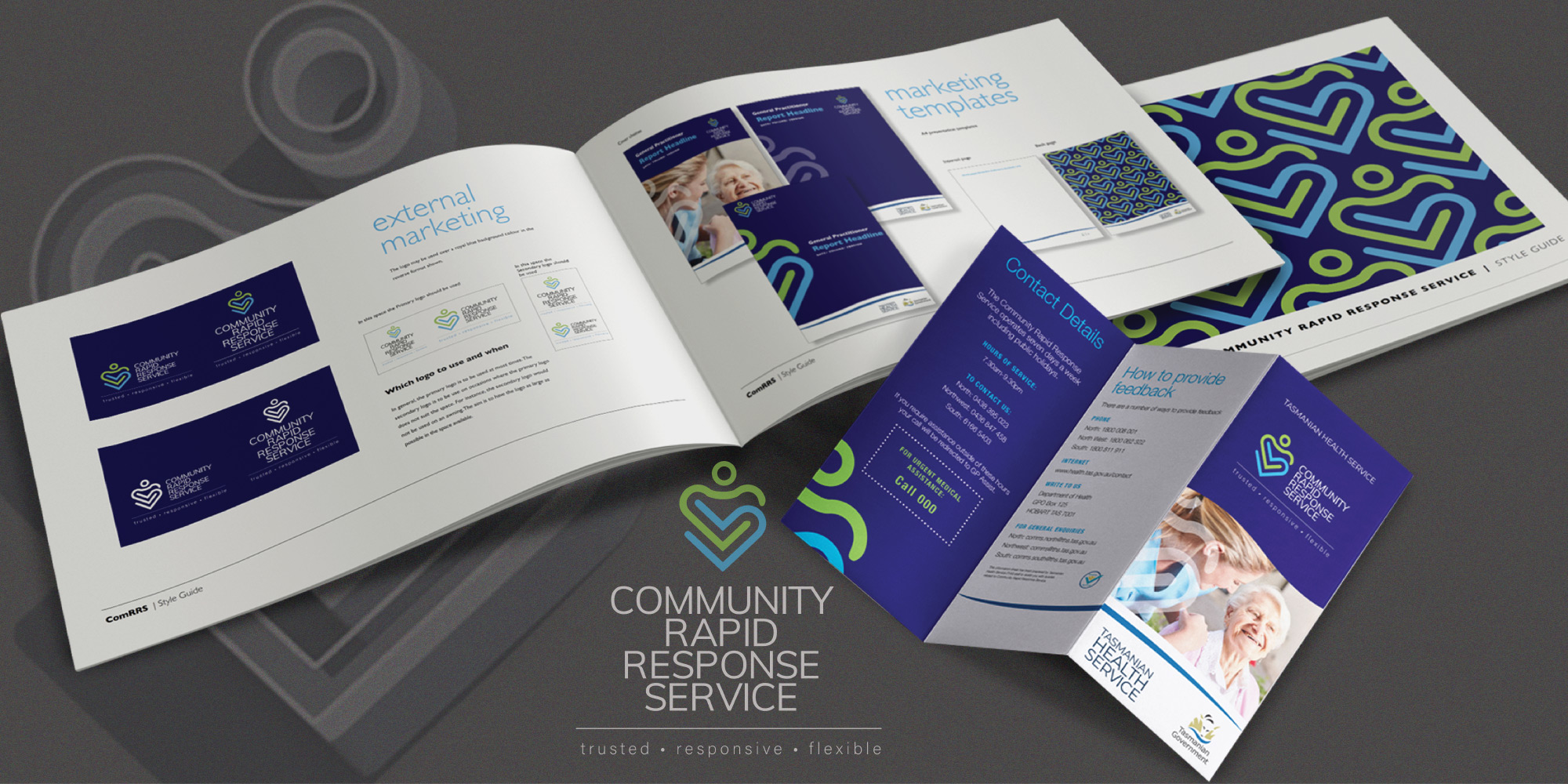
The Brief
The Community Rapid Response Service is a State Government health service, delivering services in the community. Part of the Tasmanian Health Service (THS), it is located across the state with three different teams based in Hobart, Launceston and Devonport.
This highly successful service delivers care for hundreds of Tasmanians, saving patients and families trips to hospital each year and reducing demand on inpatient services. Treating these patients in the community frees up hospital beds, meaning more medical and surgical services for more patients.
A brand including positioning was required to support the full state-wide rollout including the associated collateral plus a style guide.

The Approach
A brand audit was held at Campbell Town with the senior state-wide team from (THS). Part education on the requirements of a good brand the understanding on how a sub-brand fits within the overall THS Corporate Style Guide was explored.
From this a range of concepts for the branding was developed and focus grouped with the THS team with the understanding that the creative must be consistent with the Tasmanian Government Style Guide and Logo Policy and the Department of Health Style Guide.

The Results
Logo, branding, positioning and associated collateral was finalised with unanimous consent of the working party. This has resulted in a contemporary brand being developed that has its own style guide usage, however still fits respectfully within the greater THS Corporate Style Guide policy for sub brands.
Following the service’s increase in funding during and after the development of the new branding, the scope of care provided increased significantly. Referrals to the service by general practitioners increased by 28 per cent, and patients became increasingly aware of the service. The Community Rapid Response Service provided over 8,000 occasions of service to Tasmanians in 2019, reducing the strain on local hospitals and providing patients with care in their own home environments.


